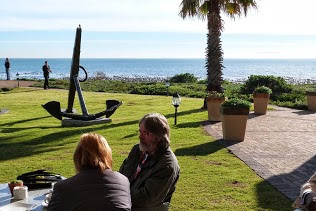 |
| Johannesburg, South Africa |
Attention all lecturers who are working with first
year students! Working towards excellence in support of the first-year students
in South Africa, the 2018 SANRC conference will be held in Johannesburg, South
Africa between 23 and 25 May next year. The focus is on ‘critically examining
all aspects of the first year experience’.
Although I am used to being a lecturer who is
responsible for the first years, I am still amazed by the fragmentation and
diversity and constant regressing of students’ ability to read, write and
comprehend meaning.
This conference calls together those involved with
first year students to participate in collaborative and scholarly discussions
about the first year experience and how we can improve and expand the support structures
to ensure success and reduce drop-out rates. Some of the questions that need
our attention, include:
Do we know enough about the multi-faceted needs of
first-year students?
Are lecturers fully capacitated to meet the needs of
first-year students?
Can new learning models and technologies create a
new learning dynamic for students?
How well are we serving our students in terms of the
various academic support programmes offered at South Africa’s universities?
This conference is designed to thoughtfully consider
these questions and problem areas through introspection, both on an individual
and institutional basis. All who are involved should reflect upon what it
really means to fully support first-year students.
Abstracts should focus on the following sub-themes:
• How to teach for first-year success
• ‘Show and Tell’: Innovative first-year support initiatives
• Measurement and accountability in first-year
support services: Are we getting
it right?
• Orientation programmes as a key element of student
support
• Engaging the student voice: Critical Perspectives
from students
• International models of first-year support
• Theorizing academic support
Abstracts should be double spaced and written in
Arial Font, size 11. Abstracts should also be limited to 350-400 words.
This first round is open for abstract submission
until 30 September 2017, and is tailor made to accommodate those of us who need
to apply for funding from our institutions.






















